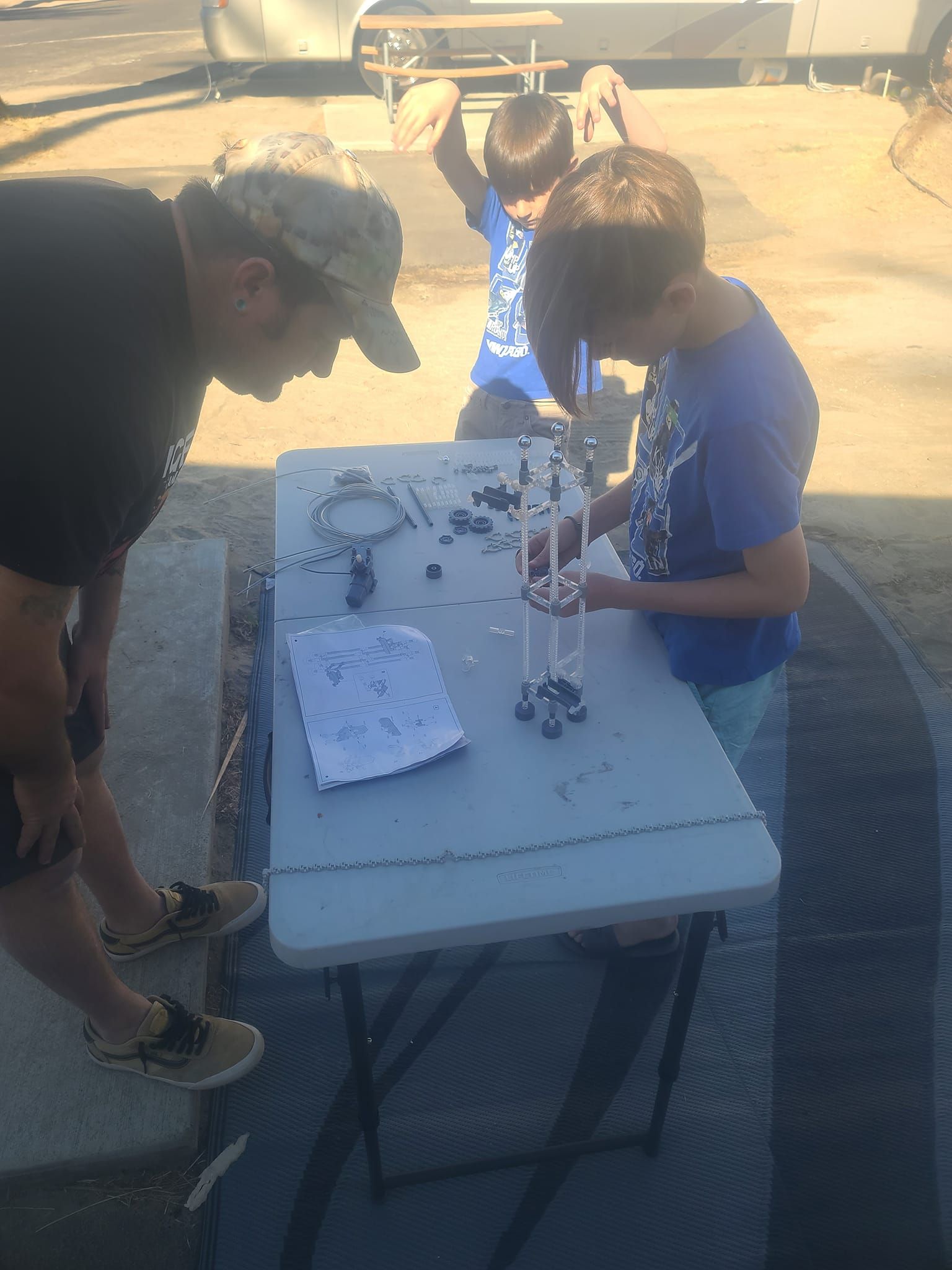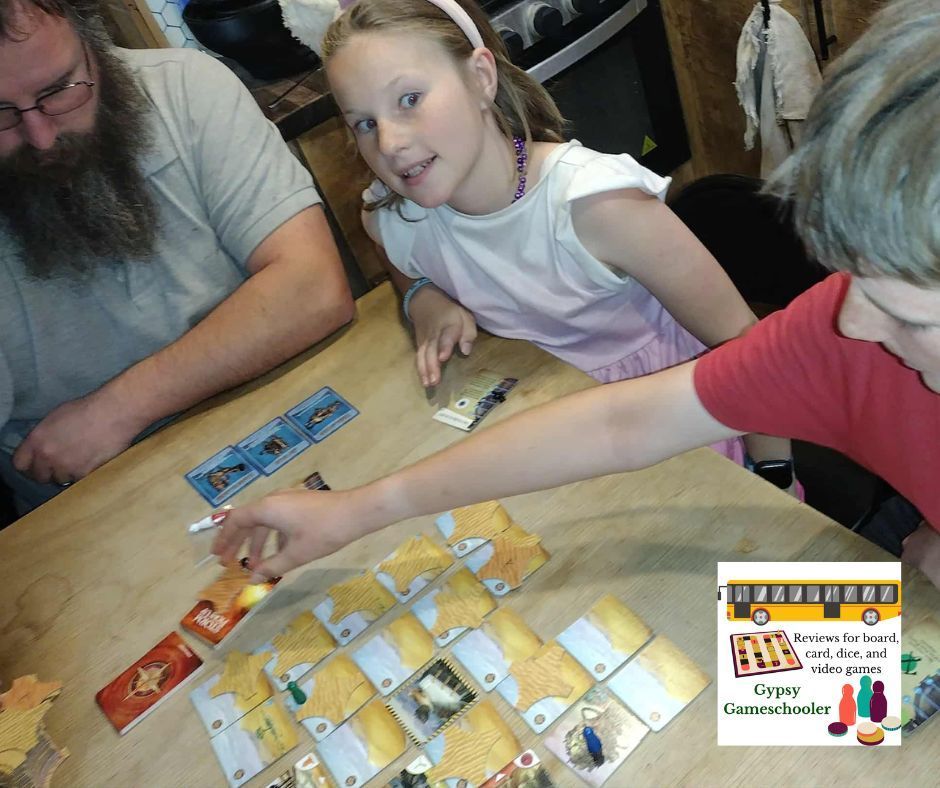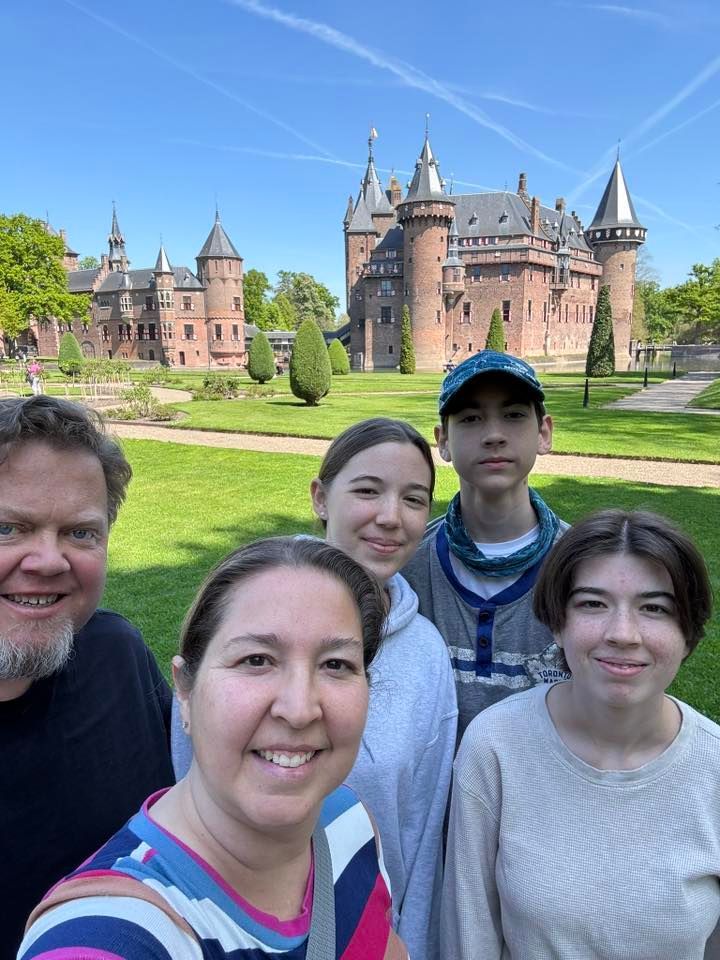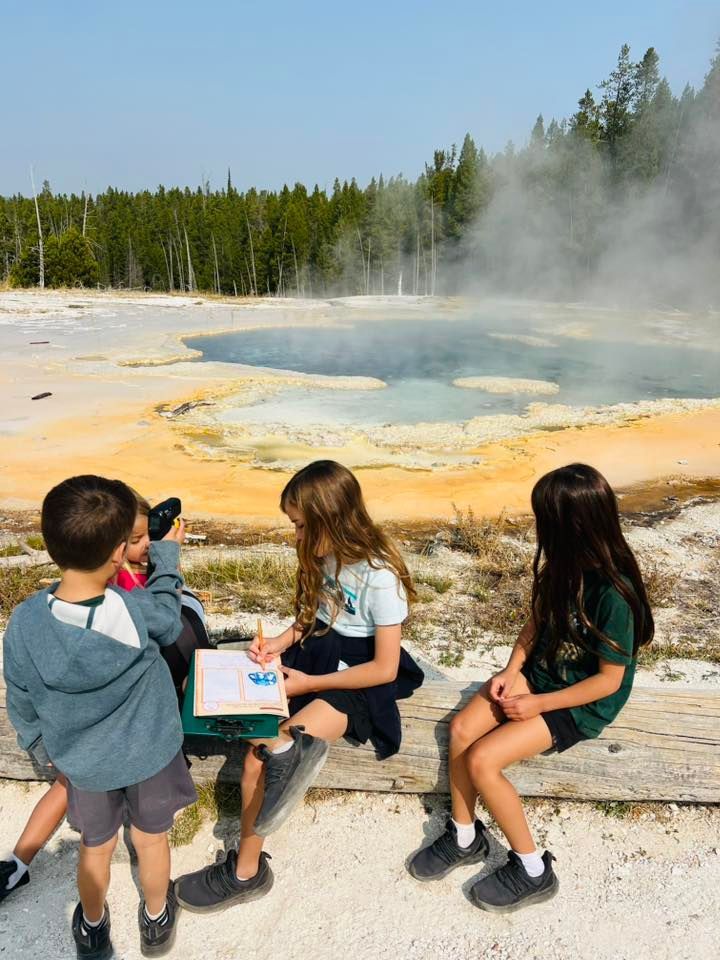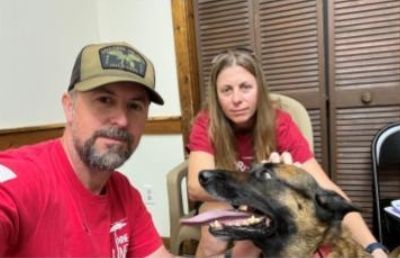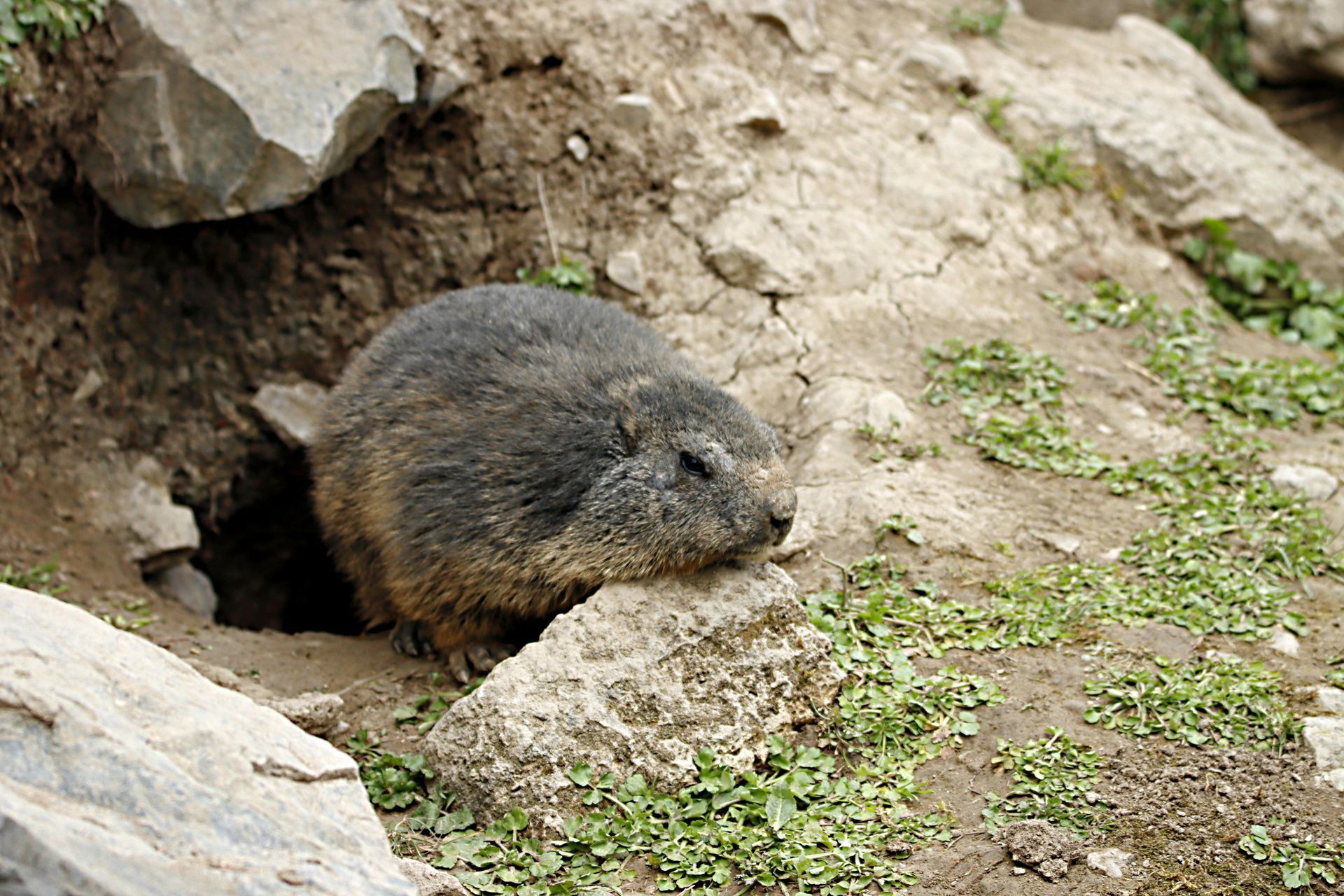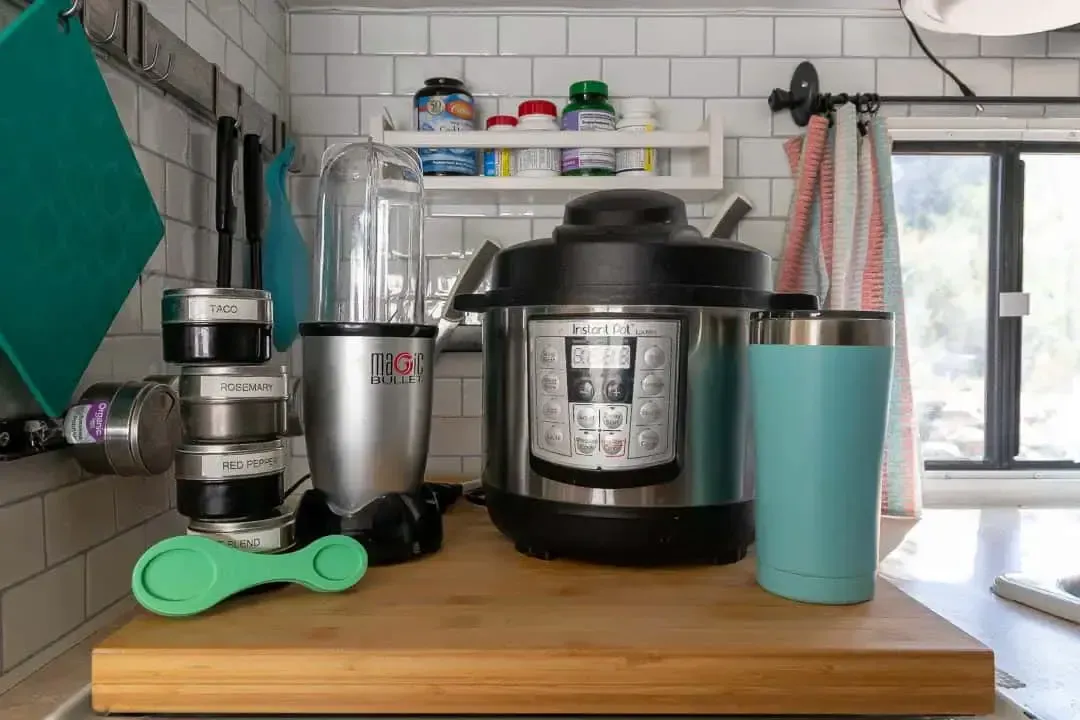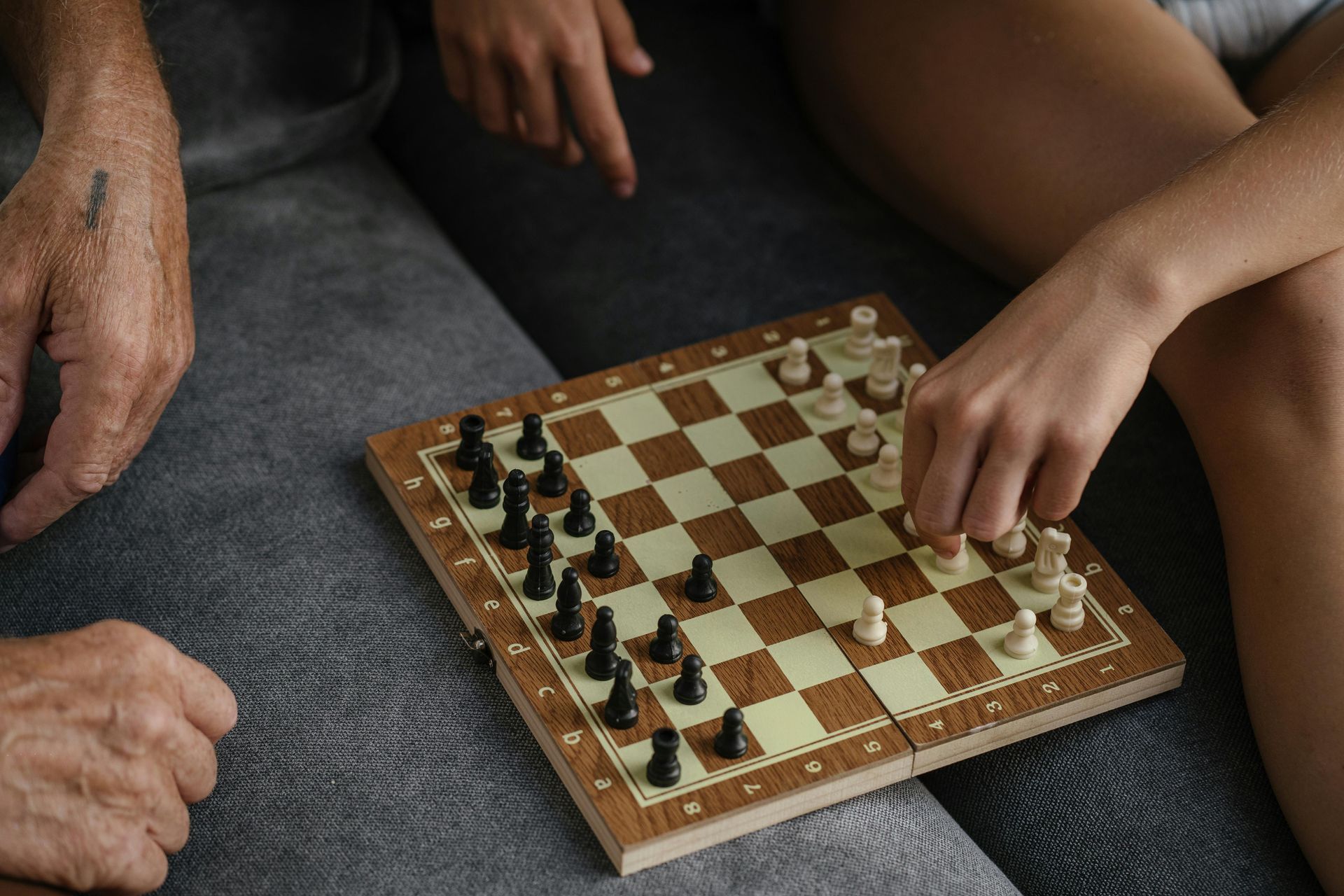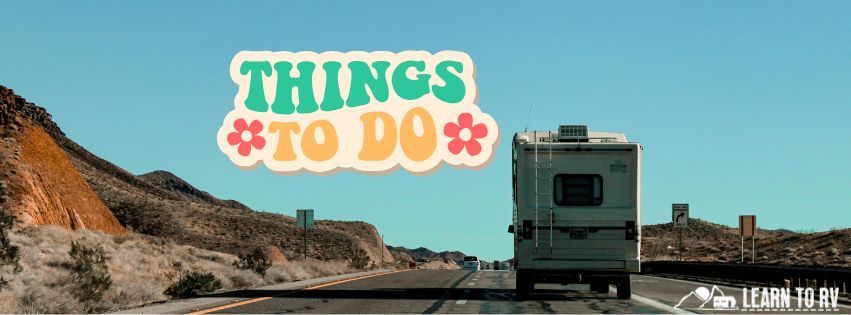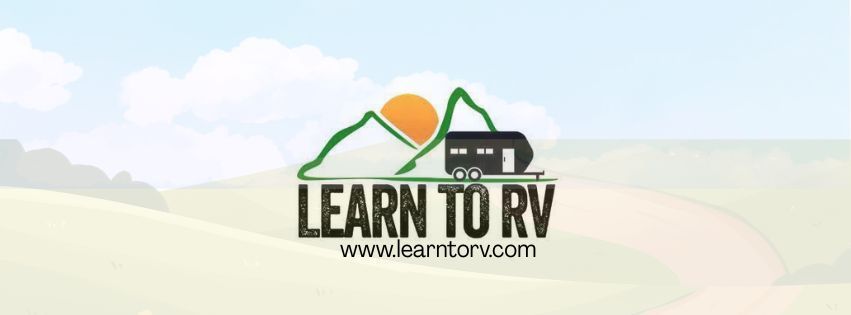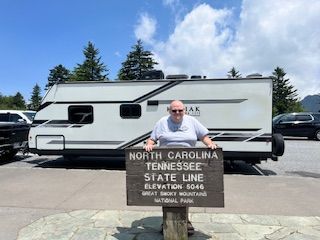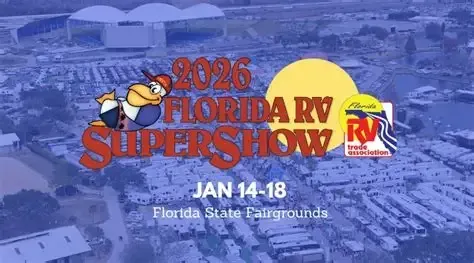Deschooling isn't Doing Nothing - It's doing everything differently
Jennifer Schillaci • October 31, 2025
............ Especially when you're roadschooling
When families hit the road in an RV, they often imagine freedom: open skies, flexible schedules, and learning that flows with life. But when it comes to education, many feel pressure to replicate "school at home" with rigid schedules, worksheets, and standardized benchmarks.
That’s where deschooling comes in. Both kids & parents have to unlearn those rigid expectations and rediscover curiosity, adventure and embrace the freedom of life on the road. It's not being lazy. It's not lost time. It's building a cornerstone for a foundation of lifelong learning.
So What Is Deschooling?
Deschooling is the intentional process of stepping away from traditional school structures — not just physically, but mentally and emotionally. It’s about unlearning the habits, expectations, and assumptions that school systems imprint on kids and parents alike.
It’s not a curriculum. It’s not a break. It’s a recalibration.
How Does Deschooling Help?
• Rebuild trust in their children’s natural curiosity
• Shift from compliance-based learning to interest-led exploration
• Heal from academic burnout or anxiety
• Discover new rhythms that fit RV life, travel, and family values
• Create space for lifelong learning instead of short-term performance
RV life is the perfect setting for deschooling.
• Learning is everywhere: From national parks to local museums, every stop is a classroom.
• Schedules are often more flexible: You can follow the weather, the seasons, or your child’s passions.
• Family connection deepens: Without the rush of drop-offs and homework, relationships flourish.
• Real-world skills emerge: Budgeting, route planning, repairs, and community-building become part of the learning journey.
Deschooling isn’t mandatory for roadschooling, but it’s often a powerful and helpful transition, especially if your child has spent time in traditional school.
Deschooling is the intentional pause between leaving formal schooling and beginning a more flexible, interest-led learning journey. For roadschooling families—who often blend travel, real-world experiences, and personalized education—it can be a crucial reset.
What Deschooling Offers Roadschooling Families
• Emotional decompression: Kids (and parents!) need time to shed school-based expectations like grades, rigid schedules, and performance anxiety.
• Mindset shift: Deschooling helps families embrace learning as a lifestyle, not just a curriculum. This is especially important when your classroom is a national park, museum, or roadside diner.
• Curiosity reignited: Without the pressure of worksheets and tests, kids often rediscover their natural interests—whether that’s geology in Utah or history along the Erie Canal.
• Relationship repair: Many families find that deschooling strengthens bonds, especially if school was a source of stress or conflict.
🧭 Do All Roadschoolers Need to Deschool?
Not necessarily. If your child has never attended traditional school, or if your family already embraces flexible learning, you may not need a formal deschooling phase. But if your child is transitioning from public or private school, deschooling can make roadschooling more joyful and sustainable.
Playing Games During the Deschooling Phase
Games aren’t just a way to pass the time — they’re one of the most powerful tools for learning, especially during the deschooling phase. When families step away from traditional school structures, games offer a low-pressure, high-engagement way to rebuild curiosity, connection, and confidence. Whether it’s a board game around the picnic table, a card game during a rainy afternoon, or a digital adventure on a travel day, play becomes a bridge back to joyful learning.
Through games, kids naturally practice problem-solving, math, reading, logic, and even emotional regulation. They learn to take turns, strategize, collaborate, and navigate both victory and disappointment. These are real-life skills, wrapped in fun.
For RV families, games are especially valuable. They’re compact, portable, and easy to pull out during downtime or long drives. Many games double as family bonding time, sparking laughter, storytelling, and shared memories. And because roadschooling is rooted in flexibility, games can fill the gaps when formal lessons take a backseat to travel or work.
You don’t need a curriculum to justify game time. A round of Yahtzee builds math fluency. Story Cubes fuel creative writing. Ticket to Ride teaches geography and planning. Even cooperative games like Outfoxed or Pandemic help kids develop empathy and teamwork.
During deschooling, games remind us that learning doesn’t have to look like school. It can look like joy, connection, and discovery — one roll of the dice at a time.
One of the most unexpected joys this year has come through online games — specifically, Dungeon & Dragons sessions on Outschool.
My kids play with other children in a virtual campaign led by Rachel, a phenomenal Dungeon Master whose passion for teaching shines through every interaction. She doesn’t just guide the game — she empowers the players.
Whenever the kids have questions, Rachel is patient, engaging, and encouraging. Through character creation, world-building, and collaborative storytelling, my children have embraced a completely different way to learn. They’re practicing writing, math, critical thinking, and social-emotional skills — all while immersed in a world of imagination and teamwork. It’s proof that learning doesn’t have to look like school to be meaningful.
Debunking Some Deschooling Myths
Let’s clear up a few misconceptions:
"Deschooling is lazy.” - It’s an intentional choice and often more work than traditional schooling, both emotionally and relationally.
"Kids will fall behind" - Behind what? Deschooling helps kids move at their own pace, often accelerating once they reconnect with joy.
"It’s just unschooling.” - Deschooling is a transitional phase. Some families move into unschooling, others choose eclectic or structured homeschooling.
"It’s only for kids." - Parents need deschooling too — to let go of control, fear, and comparison.
You Don’t Have to Be an Unschooler to Deschool
Let’s clear something up: deschooling isn’t just for unschoolers. You don’t have to ditch structure entirely or embrace radical freedom to benefit from deschooling. It’s not about labels — it’s about letting go of rigid expectations that no longer serve your family.
Often, the pressure comes from us — not the system. We carry assumptions like:
• “Learning must happen between 8 AM and 3 PM.”
• “Kids need to study for X hours a day.”
• “Schoolwork should be done before play.”
But, the truth is, RV life invites a different rhythm. Our kids are night owls, so we let them sleep in and wake naturally. On days with planned activities, they set alarms just like we do for work. That’s not laziness... it’s self-regulation. It’s learning to manage time in a way that fits real life.
Running a business on the road means our kids see the full picture: setup, teardown, customer service, and event logistics. During show weeks, learning shifts toward teamwork, responsibility, and adaptability. That’s deschooling in action — recognizing that education doesn’t only happen at a desk.
Deschooling helps you reframe what counts as learning. It’s not about doing nothing. It’s about doing everything differently — with intention, flexibility, and trust.
Helpful Tips for Deschooling on the Road
- Start with connection: Prioritize play, conversation, and shared experiences.
- Observe, don’t direct: Watch what your kids gravitate toward — bugs, books, baking, or building.
- Document the journey: Use journals, photos, or podcasts to reflect on growth.
- Limit formal academics: Give space for natural learning to emerge before reintroducing structure.
- Join RV learning communities: Connect with other roadschoolers for support and inspiration.
Creating Lifelong Learners
Deschooling isn’t about abandoning education — it’s about reclaiming it. When kids learn to learn for themselves, they become resilient, curious, and self-directed. That’s the heart of roadschooling: learning that lasts beyond the test, the grade, or the classroom.
Deschooling doesn’t mean rejecting structure forever.
In fact, one of the most empowering parts of roadschooling is watching your kids ask for more — more challenge, more structure, more opportunity.
Some kids thrive with a daily checklist or a structured curriculum. Others may want to take college courses through dual enrollment, dive into online classes, or pursue certifications in areas they love. That’s the beauty of life on the road: you can do all of it — and your children can help navigate the journey.
Let them research programs, compare options, and set their own goals. Whether it’s choosing a curriculum, managing deadlines, or logging into a college portal, they’re building real-world skills alongside academic ones.
Roadschooling isn’t one-size-fits-all. It’s a flexible framework where your child’s voice matters. You can blend play-based learning, project-based exploration, and formal academics — all while traveling, working, and growing together.
So if your child says, “I want more structure,” or “Can I take a college class?” celebrate it. That’s self-awareness. That’s ownership. That’s lifelong learning in motion.

Deschooling Starter Kit for RV Families
Are you struggling to balance road life, work, and your kids’ education?
Are you feeling like you’re herding cats while trying to keep up with lesson plans and expectations?
Maybe it’s time to take a step back — and deschool.
Deschooling isn’t giving up on learning. It’s unlearning what traditional school told us learning should look like. It’s embracing the organized chaos of RV life and trusting that growth happens in unexpected places. Sometimes it's even around campfires, at rest stops, during setup and teardown, and in quiet moments between destinations.
How to Embrace Your Child’s Learning Style
Every child learns differently — and RV life gives you the freedom to honor that.
Here’s how to start:
• Observe, don’t assume: Watch what sparks their curiosity. Is it bugs, baking, building, or storytelling?
• Let go of the clock: If your child is a night owl, let them sleep in. Learning doesn’t have to start at 8 AM. If they are an early bird and you're not - find some middle ground.
• Use real-life moments: Show weeks, travel days, and campground chores are full of lessons in logistics, teamwork, and adaptability.
• Offer choices: Let them pick between reading, audio, hands-on projects, or videos. Autonomy builds engagement.
• Celebrate effort, not just outcomes: Growth isn’t always measurable — sometimes it’s a question asked, a skill attempted, or a moment of reflection.
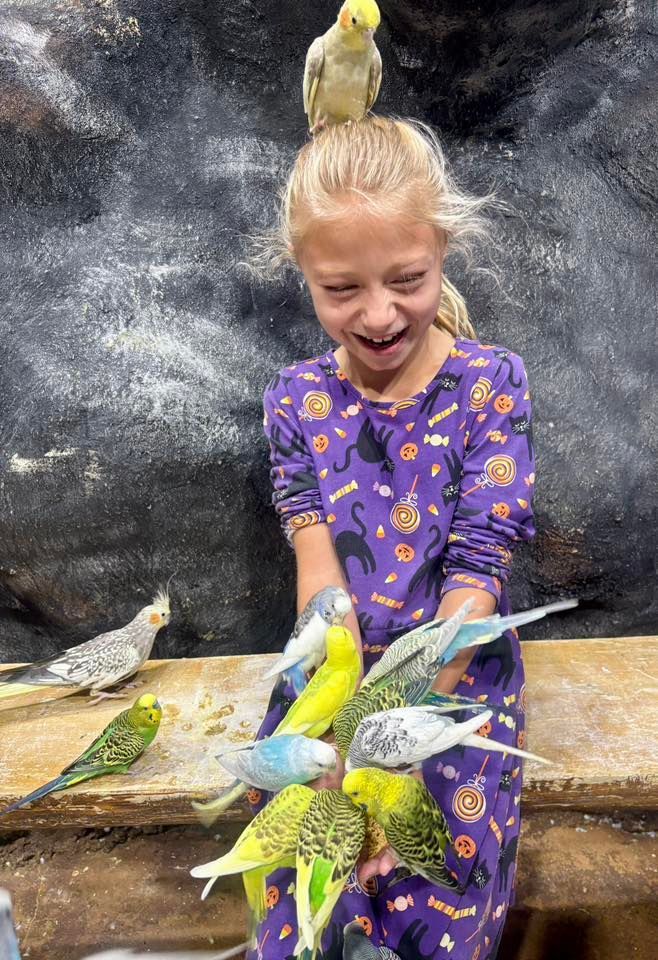
Play isn’t a break from learning — I think we often forget it is learning.
Children process the world through movement, imagination, and experimentation. Whether they’re building forts, inventing games, or narrating stories with action figures, they’re developing critical skills: problem-solving, emotional regulation, collaboration, and creativity.
In RV life, play becomes even more powerful:
• Nature is the playground: Sticks become tools, trails become quests, and puddles spark scientific curiosity.
• Space is flexible: A picnic table can be a lab, a bunk can be a reading nook, and a campground can host a scavenger hunt.
• Schedules can breathe: You don’t have to rush recess — you can let play unfold naturally.
When we give kids time to play, we’re saying: “Your ideas matter. Your curiosity is valid. Your joy is enough.”
So if your child wants to spend the morning building with LEGOs or sketching in a notebook instead of doing a worksheet — that’s not a detour. That’s the path.
Let them play. Let them discover. That’s how lifelong learners are made.
Deschooling is a mindset shift. It’s trusting that your child is learning — even when it doesn’t look like school. It’s giving yourself permission to pause, pivot, and play. Roadschooling works best when it’s personalized, playful, and rooted in real life. Deschooling can be an invitation to learn, grow, and thrive wherever the road takes you.
Starter Tools for the Journey
Here’s a simple toolkit to help you deschool with confidence:
A Journal - Track interests, questions, and discoveries — no grades needed.
Podcasts & Audiobooks - Great for travel days and auditory learners.
A Libby Account - This can be acquired through many local libraries and it is FREE
Field Guides & Maps - Turn hikes and drives into geography and science lessons.
Physical Education - Hiking, biking, swimming & so much more are a part of this lifestyle
Open-ended Kits - STEM, art, and nature kits that invite exploration.
Explore- Take the time to explore where you are. There are lots of hidden gems.
Atlas Obscura - a fun website to find unique things near you
Geocache- an interesting way to earn navigation and have some fun!
Educational Apps - Duolingo, Khan Academy, Prodigy, and BrainPOP offer flexible
learning on the go.
YouTube Playlists - science experiments, DIY projects, or travel documentaries.
*great for travel days!
Community - Join roadschooling groups like Roadschooling Resources, attend rallies, and share stories.

Got Questions About Roadschooling or Deschooling? Let’s Connect!
If you and your children are struggling or feeling overwhelmed, you are not alone. Roadschooling and deschooling can be beautiful, but they can also feel messy, uncertain, and exhausting — especially when you're juggling travel, work, and learning all at once.
That’s why connection matters.
Whether you're just starting your journey or deep in the rhythm of RV life, you're not alone.
Or maybe you're just curious about deschooling, wondering how to support your child's learning style, or looking for real-world tips on roadschooling — I’d love to chat.
Drop a comment, send a message, or reach out through our absolutely FREE Community Group Roadschooling Resources. You can even email me directly at Roadschoolingresources@gmail.com
This is a safe, supportive space for roadschooling families and dreamers to gather information, spark ideas, and build real-life connections. Because we prioritize the safety and privacy of traveling families, this is a closed group.
This group is a safe space for roadschooling families—and anyone dreaming of learning beyond the classroom.
• 🧭 A curiosity seeker exploring alternative education
• 🚐 A full-time roadschooling family living the RV life
• 🏡 A stationary homeschool family always chasing adventure
• 👵 A grandparent bringing grandkids along for summer travels
To join, you will need:
• A real profile photo
• Answers to the membership questions & agree to the group rules
These steps help us ensure that every member is here with genuine intent and respect for the community. Thank you for helping us keep this space welcoming, secure, and full of possibility.
Let’s build a community where questions are welcome, creativity thrives, and every family finds their own path to lifelong learning.


